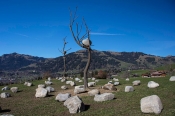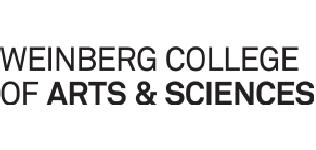Sky Hopinka,
2018
Sky Hopinka is a member of the Ho-Chunk Nation. He was born and raised in Ferndale, Washington and spent several years in Southern California, and Portland, Oregon and is currently based out of Milwaukee, Wisconsin. In Portland, he studied and taught chinuk wawa, a language indigenous to the Lower Columbia River Basin. His work centers around personal positions of homeland and landscape, designs of language and facets of culture contained within, and the play between the accessibility of the known and the unknowable. He received his BA from Portland State University in Liberal Arts and his MFA in Film, Video, Animation, and New Genres from the University of Wisconsin-Milwaukee.
His work has played at various festivals and exhibitions including ImagineNATIVE, Images Festival, Courtisane, Wavelengths, Ann Arbor Film Festival, AFI, Sundance, Antimatter, Chicago Underground Film Festival, FLEXfest, Projections, Out of Sight Seattle, the 2016 Wisconsin Triennial and the 2017 Whitney Biennial. He was awarded jury prizes at the Milwaukee Underground Film Festival, the More with Less Award at the 2016 Images Festival, the Tom Berman Award for Most Promising Filmmaker at the 54th Ann Arbor Film Festival, 3rd Prize at the 2015 Media City Film Festival, and the New Cinema Award at the 2017 Berwick Film and Media Arts Festival.
Rodeny McMillian,
2018
Rodney McMillian (b. 1969) lives and works in Los Angeles, CA. McMillian received an MFA from the California Institute of the Arts in 2002. He received the Contemporary Austin’s first Suzanne Deal Booth Art Prize in 2016, and the resulting solo exhibition Rodney McMillian: Against a Civic Death is on view through August 26, 2018. McMillian had three solo museum exhibitions in the United States in 2016: “The Black Show,” curated by Anthony Elms at the Institute of Contemporary Art, University of Pennsylvania, Philadelphia, PA; “Views of Main Street,” curated by Naima Keith at the Studio Museum Harlem, New York, NY; and “Landscape Paintings” curated by Heidi Zuckerman Jacobson and Peter Eeley at MoMA PS.1, New York, NY. McMillian has previously had solo exhibitions at The Aspen Art Museum, Aspen, CO; The Institute of Contemporary Art, Boston, MA; the Kitchen, New York, NY; and at Triple Candie, New York, NY. His work has been featured prominently in many group exhibitions including the 12th Sharjah Biennial, “The past, the present, the possible,” curated by Eungie Joo; “Ruffneck Contstructivists,” curated by Kara Walker at the Institute of Contemporary Art, Philadelphia, PA; “Blues for Smoke,” curated by Bennett Simpson at the Museum of Contemporary Art, Los Angeles, CA; the 2008 Whitney Biennial, Whitney Museum of American Art, New York, NY; “BLACK IS, BLACK AIN’T,” curated by Hamza Walker at the Renaissance Society, Chicago, IL; “Painting in Tongues,” the Museum of Contemporary Art, Los Angeles, CA; and “Uncertain States of America,” Astrup Fearnley Museum of Art, Oslo, Norway. McMillian is represented by Susanne Vielmetter Los Angeles Projects, Culver City, CA and Maccarone Gallery, New York, NY.
Monika Szewczyk,
2017
Monika Szewczyk organizes exhibitions, writes, edits and teaches – often in partnership with institutions of art and higher learning. Having moved to the Greek capital in January 2015 to join the curatorial team of the 14th edition of documenta, "Learning from Athens (working title)", Szewczyk continues to live in the Greek capital and currently works independently. With Marina Fokidis, founding editor of South as a State of Mind, she is now planning the continuation of this Athenian magazine beyond its recent role as journal of documenta 14. From 2012 through 2014, she shaped Visual Arts Program as Curator at the then newly opened Reva and David Logan Center for the Arts, University of Chicago. Previously she was Head of Publications at the Witte de With Center for Contemporary Art in Rotterdam (2008–2011) and Assistant Curator at the Vancouver Art Gallery (2004–2007). Throughout, she has taught at the Emily Carr University in Vancouver (2002-2007), Piet Zwart Institute in Rotterdam (2008-2012), Bergen Academy of Art and Design (2011), and the University of Chicago (2012-2014). Szewczyk has (co-) authored texts for numerous catalogues and journals such as Afterall, A Prior, F.R. David, Mousse, e-flux journal online and The Exhibitionist and edited volumes ranging from artist’s books, through monographs to readers and catalogues. She holds degrees from the University of British Columbia in International Relations (BA) and Art History (MA). Beginning with her masters thesis on Vito Acconci’s ‘home made epic’, The Red Tapes; through published texts such as ‘art of conversation’; to close collaborations with artists and institutions her work continues to draw inspiration from oral technologies and traditions.
Giuseppe Penone,
2018
Giuseppe Penone started working professionally in 1968 in the Garessio forest, near where he was born, in Italy. He is the younger member of the Italian movement named "Arte Povera", a term that was coined by Germano Celant. Penone's work is concerned with establishing a contact between man and nature.
His sculptures, installations and drawings have always been distinguished by his radical choice of unconventional materials and use of processes that are an integral part of his work. Each work reaches completion through the assimilation of its actions to those of the natural elements and grows out of reflection that adhere closely to the concrete, visual, tactile and olfactory qualities of the materials, explored by the artistic ways that bring out their magical and fantastic groundwork.
The tree, a living organism, in appearance so closely resembling the human figure, is a central element in Penone's work. Many of the procedures he adopts in the creation of his works are based on the act of relating different entities and forces, hence on traces or memories of the contacts between them.
In Penone's work, above all its more recent developments, the opposed concepts of identità ("identity") and identicità ("analogy") are assimilated according to a logic that is not extraneous to the Italian language, as in other European languages in which the two cognate words share the same etymon. The assimilation is shown in the process by which the artist emphasizes similar behaviors that belong to different entities by fossilizing them in a form. As a result, images are created that are capable of making the thoughts and imagination of those who observe them flow from one material to another, from one subject to another, from an animal body to a vegetable or mineral body.
Fred Moten,
2017
Fred Moten is Professor of English at the University of California, Riverside, where he teaches courses and conducts research in black studies, performance studies, poetics and literary theory. He is author of In the Break: The Aesthetics of the Black Radical Tradition (University of Minnesota Press, 2003); Hughson’s Tavern (Leon Works, 2009); B. Jenkins (Duke University Press, 2010); The Feel Trio (Letter Machine Editions, 2014), which was a poetry finalist for the National Book Award and Los Angeles Times Book Prize and winner of the California Book Award for poetry; The Little Edges (Wesleyan University Press, 2015), which was a finalist for the Kingsley Tufts Poetry Award and The Service Porch (Letter Machine Editions, 2016), A Poetics of the Undercommons (Sputnik and Fizzle, 2016) and a three volume collection of essays whose general title is consent not to be a single being (Duke University Press, 2017, 2018). Moten is also co-author, with Stefano Harney, of The Undercommons: Fugitive Planning and Black Study (Minor Compositions/Autonomedia, 2013) and, with Wu Tsang, of Who touched me? (If I Can’t Dance, I Don’t Want to be Part of Your Revolution, 2016). Moten has served on the editorial boards of Callaloo, Discourse, American Quarterly and Social Text; as a member of the Critical Theory Institute at the University of California, Irvine; on the board of directors of the Center for Lesbian and Gay Studies, City University of New York; and on the advisory board of Issues in Critical Investigation, Vanderbilt University. Moten has been the Whitney J. Oates Fellow in the Humanities Council and the Center for African American Studies at Princeton University, the Sherry Memorial Visiting Poet at the University of Chicago and a Visiting Artist at the Milton Avery Graduate School of the Arts, Bard College. In 2016 he was awarded a Guggenheim Fellowship and the Stephen E. Henderson Award for Outstanding Achievement in Poetry by the African American Literature and Culture Society.



